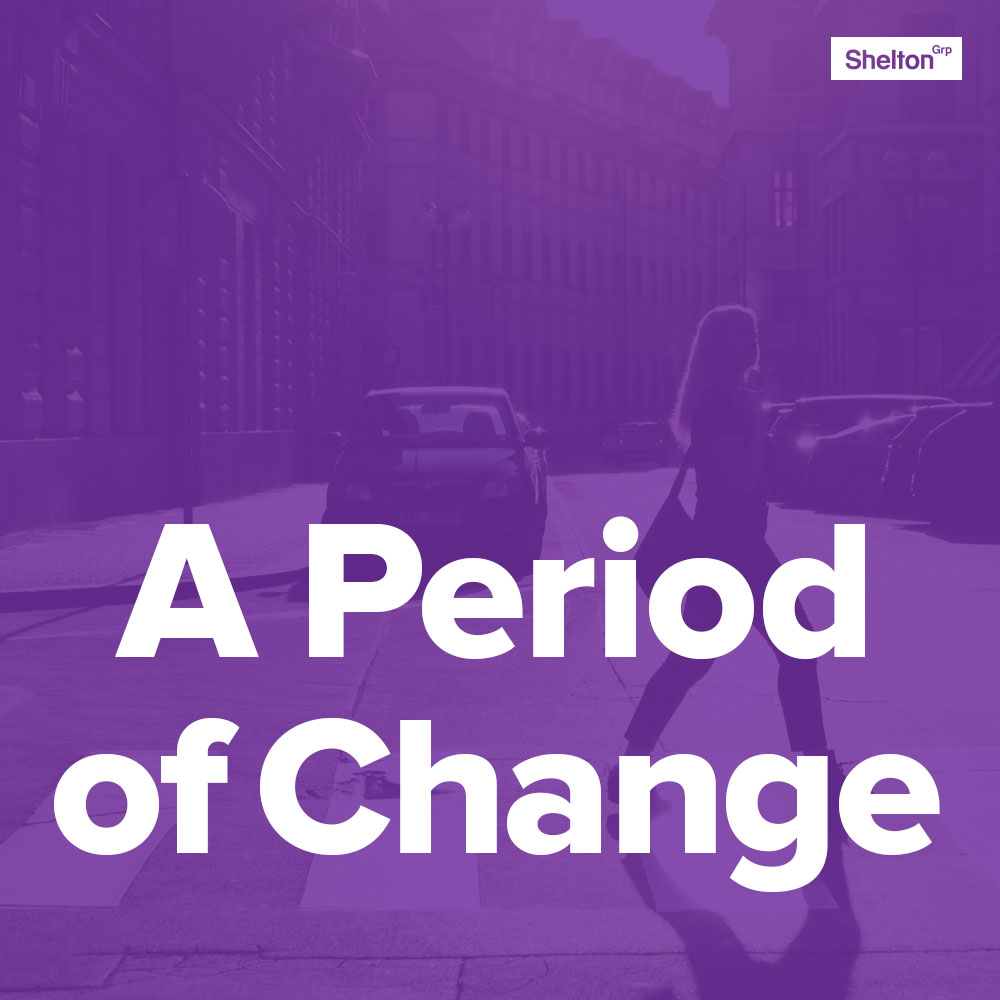Gillette vs. Nike: Right and Wrong Ways to Take a Stand

Shelton Insight
64% of Americans who say it’s “extremely important” for a company to take a stand on a social issue say they are “very likely” to purchase a product based on that commitment (Brands & Stands 2018).

Sustainability Win of the Week
Sometimes taking a stand pays off, other times it backfires.
Last week, Gillette – the men’s shaving brand owned by Procter & Gamble – launched a controversial ad. Chances are, you’ve seen it. Or, if you haven’t, surely you’ve heard about it – it’s been all over the news.
More controversial and widely talked about than even most Super Bowl ads, the Gillette ad addresses a problem in the United States – one that has come to a head in recent years via the #MeToo movement: the issue of misogyny, sexism and sexual harassment of women by men – as well as acts of violence and bullying commonly accepted as part of masculinity, or a “boys will be boys” sort of mentality. The commercial asks, “is this the best a man can get?” while juxtaposing that question with images of harassment and bullying. The ad closes with a message to men: “say the right thing, act the right way” and hold other men accountable for their actions because “the boys watching today will be the men of tomorrow.”
Let’s put aside our own personal feelings on the ad for a moment and use a data lens to dig into why it doesn’t quite work. And let’s answer the question: why do some brands that make bold stands weather the controversy and grow because of it (such as Nike), whereas some don’t? We all know taking a stand on social and environmental issues is an excellent way to grow consumer interest in your brand while simultaneously achieving CSR goals – but how can you ensure that taking a stand will go your way?
Our own Brands & Stands (2018) has some solid advice on this: 86% of consumers believe that companies should take a stand for social issues, yet only 13% believe that companies should support an issue that is currently in the news. To avoid looking opportunistic, it is crucial to connect your brand’s stand to the underlying values your company supports and is known to support. Our research reveals that a brand’s favorability amongst consumers is linked to the ease in which consumers connect the stand to the brand. The stand must be logical. So, if your company makes food, then your stand should involve food (e.g., Hellman’s commitment to 100% cage-free eggs); if your company makes coffee, then your stand should likely include fair trade (e.g., Starbucks); and if you are a utility, your stand should involve clean energy, and so on.
What was Gillette’s major flaw? The values it promoted in its ad were at odds with the values it has promoted for decades. Albeit positive, Gillette’s new message (“we believe in the best in men”) is completely and suddenly at odds with its decades-old message (“the best a man can get”), which typically involved ads of women fawning over clean-shaven men. (And this is not the first time P&G has done it – check out their controversial 2017 public service announcement/ad on the topic of racism.)
Compare this to Nike’s highly successful Colin Kaepernick ad from just a few months ago. Nike’s message, “believe in something even if it means sacrificing everything,” is consistent with the underlying values Nike has promoted for decades – namely, hard work and sacrifice toward a sport (or cause) – and consumers know it. Before launching this about face, Gillette should have laid some groundwork to let their consumers know they’ve had a change of heart – which could have looked like sponsoring anti-bullying programs, on-pack messaging about respect and standing up for #MeToo on social media and other public forums. The change of heart exemplified in the ad would likely still have been controversial, but it would be less surprising. And Gillette would have had a better, more believable narrative about how they’ve been looking at their brand values over the last several years and grown embarrassed and realized it was time to make a change. This move is so sudden and so out of step with what we all know the brand to stand for that it feels like they’re not really taking a stand for men treating people with respect; it looks like they’re co-opting a current issue to sell razors. And that’s repugnant to most consumers.
Let’s think of this controversy – one that indeed holds some positive messages for consumers – as a teaching moment for brands. Think about what your brand stands for and create a commitment for social or environmental good that’s in line with your brand values. Chances are if consumers already know what you value, they will be more likely to get behind your cause and help make a difference.

News of the Week
Reviewing the automakers’ sustainability and EV commitments – Triple Pundit
The North American International Auto Show (NAIAS) wraps up this Sunday in Detroit. As automakers convene to unveil the latest cars and concepts, this article provides a look at the sustainability and electric vehicle commitments made by the world’s top automakers. Ford, for instance, has “begun experimenting with renewable, plant-based materials, including tomato skin, bamboo and algae, in an effort to replace petroleum-based plastics.” And Volkswagen has committed to a multibillion-dollar “fully electrified lineup” and phase-out of “the internal combustion engine following the release of its next generation of gasoline and diesel cars in 2026.” Other car brands discussed: Toyota, Nissan, Chrysler and GM.
Del Monte Foods releases 2018 sustainability report – Business Wire
Del Monte is joining the sustainability community with the publishing of its first-ever sustainability report. As a producer and distributor of food, Del Monte seeks to tackle sustainability issues pertaining to food chain and agricultural transparency; water and soil management; packaging, distribution and emissions; food safety and nutrition; and workers’ rights and well-being. Also key to Del Monte’s CSR goals are philanthropic initiatives such as providing food for disaster relief and innovating new packaging solutions.
A Period of Change
Once upon a time, feminine hygiene was a topic simply not mentioned in polite society – and options were limited to an aisle of single-use products. Now, times are changing, and the options have grown. What once seemed like a segment of the consumer packaged goods industry impervious to change is now undergoing profound transformation. New, reusable choices are flooding the market – choices that are better for the environment and, in most cases, work better too. Fifty-nine percent of women have used or considered using them – what will that do to your business?


TAGS: Corporate Sustainability, Energy & Environmental Marketing
SHARE THIS: